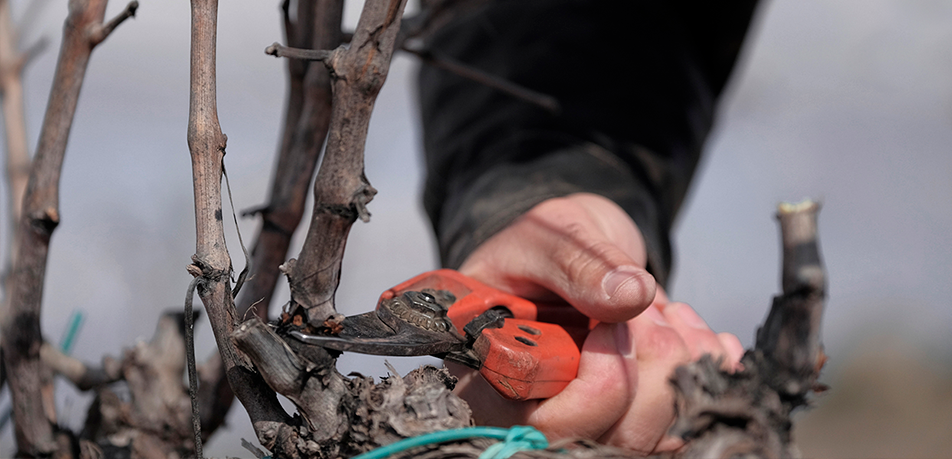VINE PRUNING BIOMASS: combating the climate crisis through clean energy

We're in the middle of a climate emergency, which also represents a significant and direct threat to the wine sector, and every effort to reduce our carbon footprint should be seen as an investment in the future.
The wine sector needs to tackle the climate crisis on two fronts. The first is adaptation. It is crucial that wineries implement measures to adapt their production processes to the climate conditions brought about by global warming.
The second front involves mitigation. Climate change is an irreversible phenomenon, but we're still in time to avoid the worst-case scenarios that scientists are warning about. Reducing greenhouse gases (GHG) like CO2, methane, water vapor, nitrous oxide, and others is one of the most effective ways to do so.
[[{"fid":"21433","view_mode":"default","fields":{"format":"default","alignment":"","field_file_image_alt_text[und][0][value]":false,"field_file_image_title_text[und][0][value]":false},"type":"media","field_deltas":{"1":{"format":"default","alignment":"","field_file_image_alt_text[und][0][value]":false,"field_file_image_title_text[und][0][value]":false}},"link_text":null,"attributes":{"height":560,"width":1920,"style":"height: 146px; width: 500px;","class":"media-element file-default","data-delta":"1"}}]]
Many of these emissions are related to energy consumption, which is why any initiative to replace fossil fuels with clean, renewable energy sources represents a significant contribution to mitigating climate change. The wine sector has access to a solid alternative: converting vine pruning residues into a source of energy through the use of biomass power plants.
Although biomass development faces ongoing hurdles in Spain, it is clearly the most promising form of renewable energy as far as winegrowing is concerned. Biomass is a GHG-neutral form of energy, because the CO2 released during the burning of the plant material is equal to the CO2 which the plant, in this case the vine, captured through photosynthesis while growing.
This means that the energy recovery of pruning residues completes the productive cycle of the vine, reducing the wine sector's carbon footprint in the process.
According to various calculations carried out at several European universities and research institutes, dormant pruning across the entire EU currently produces more than 13 million tons of organic residue every winter.
[[{"fid":"21434","view_mode":"default","fields":{"format":"default","alignment":"","field_file_image_alt_text[und][0][value]":false,"field_file_image_title_text[und][0][value]":false},"type":"media","field_deltas":{"2":{"format":"default","alignment":"","field_file_image_alt_text[und][0][value]":false,"field_file_image_title_text[und][0][value]":false}},"link_text":null,"attributes":{"height":560,"width":1920,"style":"height: 146px; width: 500px;","class":"media-element file-default","data-delta":"2"}}]]
Converting all of this biomass into energy would equal the output generated by three nuclear power plants. In the wine sector, we're looking at an undeniable opportunity to advance towards a circular economy. This would have important benefits, not only in terms of mitigating global warming, but also for distributed electricity production and self-consumption (two key factors in the new energy model), local economic development, and creating employment opportunities in rural areas.
Familia Torres runs the largest biomass boiler in the Spanish wine sector. The facility began operating in 2011, and since then it has allowed for significant reductions in GHG emissions related to the energy needs and consumption of the Pacs del Penedès winery: almost all natural gas consumption and around 10% of electricity.
Used for both heating and cooling, the boiler essentially runs on pruning-derived plant material and other residues generated during the harvest, such as pomace and stems, and allows Familia Torres to reduce its carbon footprint by 1,300 tons of CO2 per year: a move towards greater energy efficiency and fewer residues.
Ashes—used as a natural fertilizer—bring the recovery and reuse of biomass derived from pruning and other vineyard management and winemaking activities full circle. A simple, sustainable, and organic way of returning to the earth what the earth has given us, while helping to mitigate the effects of the climate crisis.
